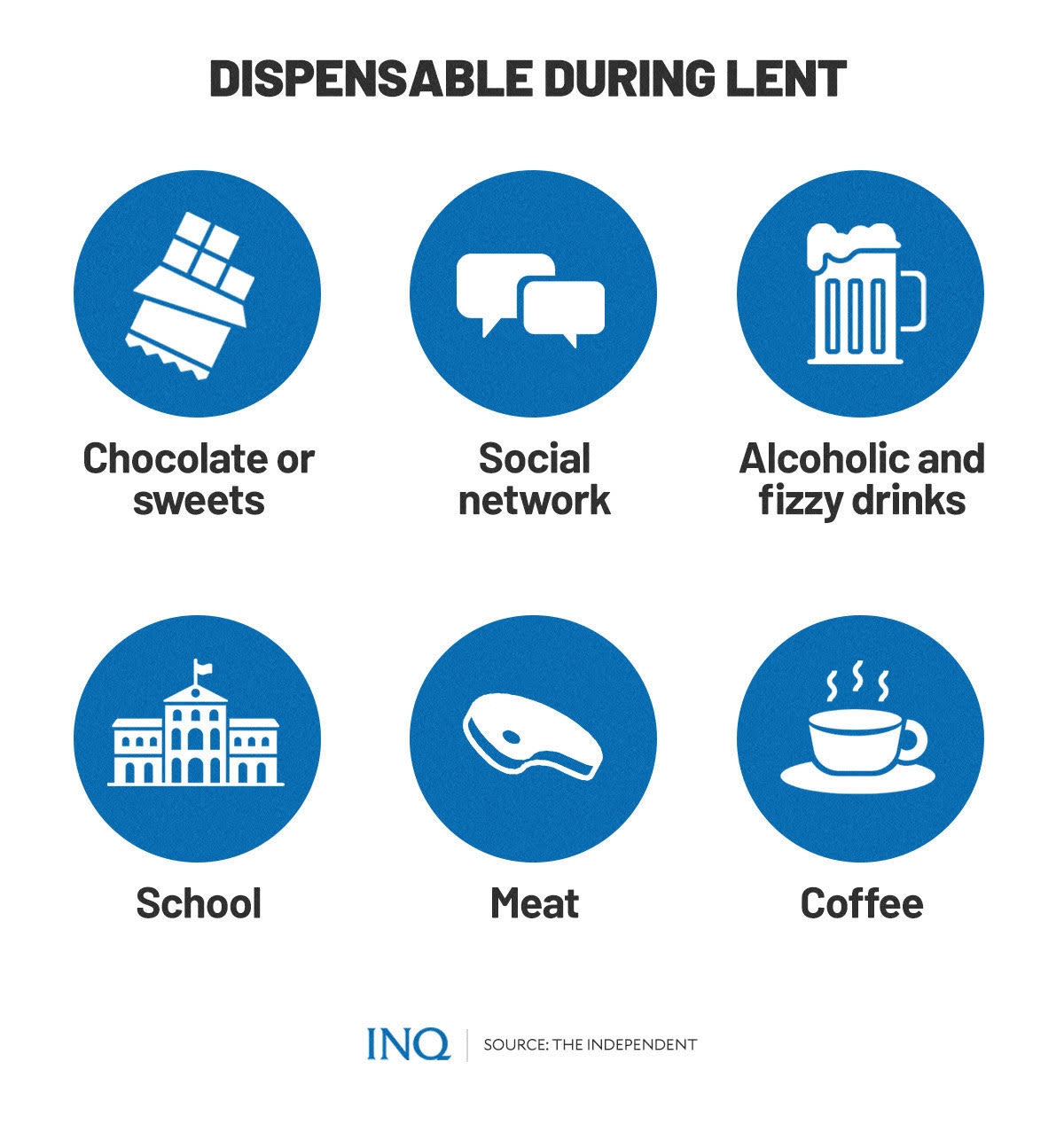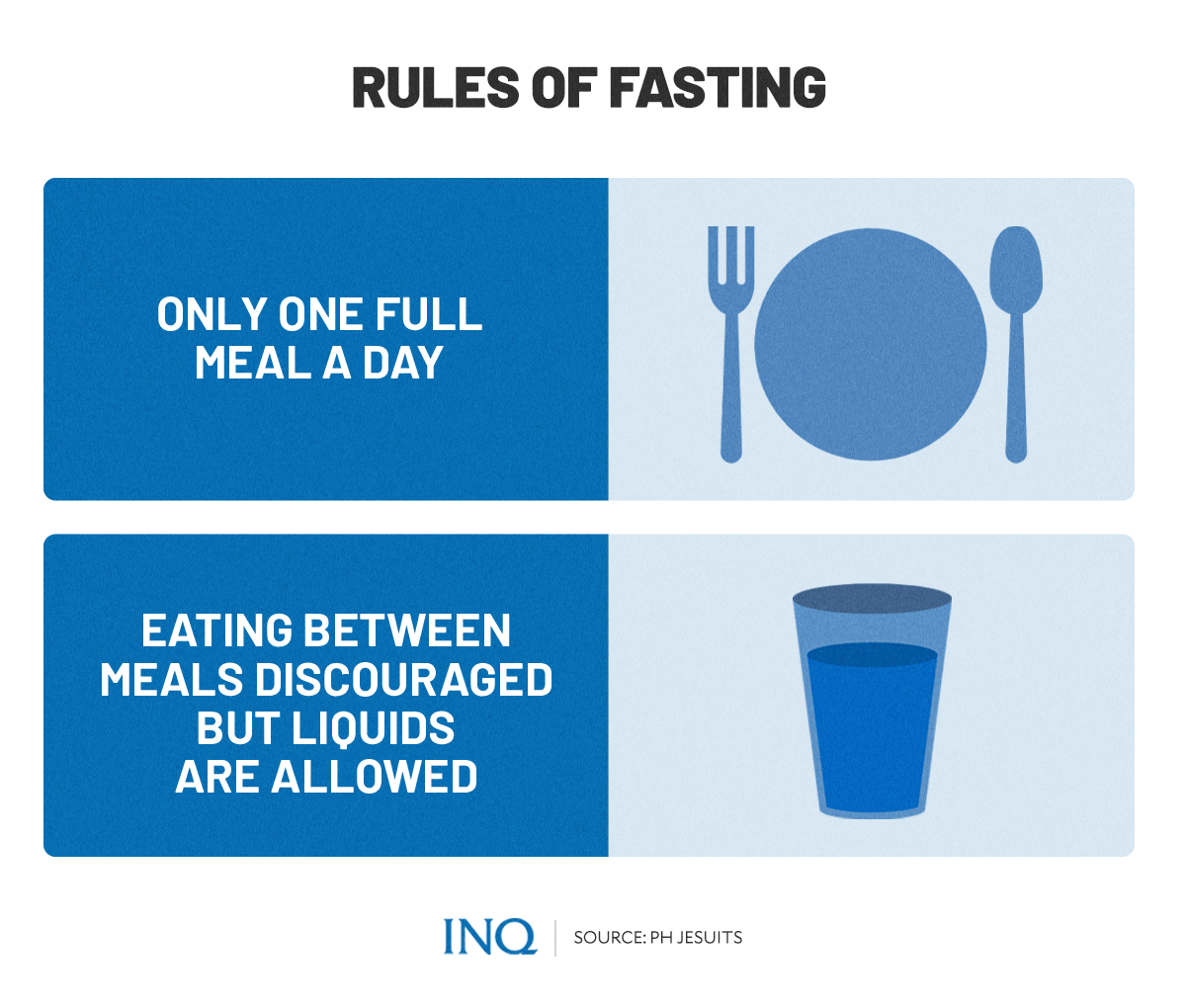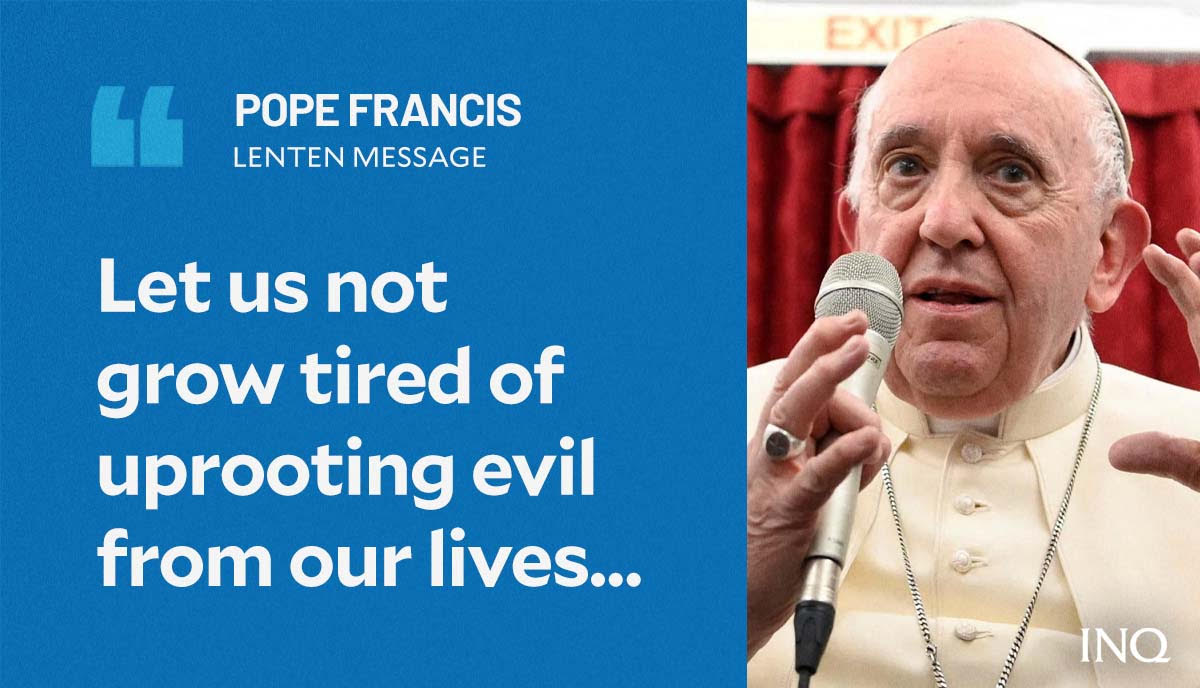Penance at Lent: What can people give up?

FILE PHOTO: Saints Peter and Paul Parish Church in Bantayan town on Bantayan Island in northern Cebu is a favorite destination for pilgrims and tourists during the Holy Week. —DALE G. ISRAEL
MANILA, Philippines—Doing penance, described by Philippine Jesuits as an “act of mortification,” is a crucial part of Lent for many Catholics.
Penance, the Jesuits said, “is any human pain observed or experienced as a sign that one remembers and wishes to participate in the sufferings that our Lord, Jesus Christ, went through for the forgiveness of our sins and our salvation.”
The two canonical forms of penance during Lent are fasting and abstinence, which Catholics are expected to practice—along with prayers—as it’s a chance to prepare for Christ’s resurrection on Easter Sunday.
READ: Lenten season: The Filipino way
“We seek the Lord in prayer by reading Sacred Scripture; we serve by giving alms and we practice self-control through fasting,” said the United States Conference of Catholic Bishops.
Fasting and abstinence
Fasting, as defined by the Catholic News Agency (CNA), is the “act of doing with less.” Catholics between 18 and 59 years old should fast on Ash Wednesday and Good Friday.
Article continues after this advertisement“The law of fasting prescribes that only one full meal a day is taken. Two lighter meals are permitted to maintain strength according to each one’s needs. Eating between meals is not permitted, but liquids, including milk and fruit juices, are allowed,” said the Philippine Jesuits.
Article continues after this advertisementAbstinence refers to the act of “doing without.” The practice is commonly observed on Ash Wednesday, Good Friday, and on all Fridays during the 40-day Lent.
“The law of abstinence forbids the eating of meat, but eggs, milk products, and condiments made from meat may be eaten. Fish and all cold-blooded animals may be eaten, for example, frogs, clams, turtles, etc.,” the Philippine Jesuits said.
“The law of abstinence binds those who have completed their fourteenth year and older. One is not bound on the fourteenth birthday, but begins to abstain at midnight at the close of the birthday.”
There are some individuals who are exempted from these practices, including senior citizens, pregnant or nursing women, those below 14 years old, the very sick, those who are materially poor and homeless, and laborers who have to work more than nine hours a day.
READ: FAQs: Fasting and abstinence during Lent
But for those who practice fasting and abstinence as a form of penance, are there other things to give up for Lent which could also express a person’s self-mortification?
What else to give up for Lent
Aside from cutting meals and staying away from certain food, Catholics who practice penance in the form of abstinence can also give up other things for Lent.
In his message for this year’s Lent, Pope Francis reminded the people: “Let us not grow tired of uprooting evil from our lives. May the corporal fasting to which Lent calls us to fortify our spirit for the battle against sin.”
“Let us not grow tired of asking for forgiveness in the Sacrament of Penance and Reconciliation, knowing that God never tires of forgiving,” Pope Francis said.
“Let us not grow tired of fighting against concupiscence, that weakness which induces to selfishness and all evil, and finds in the course of history a variety of ways to lure men and women into sin,” he added.
One of these temptations, according to the Pope, is the addiction to digital media which he said “impoverishes human relationships.”
Pope Francis emphasized resisting such temptations and instead cultivating a more integral form of human communication made up of “authentic encounters” which are face-to-face and in person.
According to the British online newspaper The Independent, among the most common things being given up for Lent by Twitter users—based on responses (both serious and non-serious) tracked by the website openbible.info—include:
- Chocolate
- Social networking
- Alcohol
- School
- Meat
- Sweets
- Coffee
- Fizzy drinks
“Certain vices like alcohol, swearing and sugary drinks nearly always feature on the list – which is compiled every year – but trends and news events do influence people’s choices,” the article in The Independent stated.
However, it noted that the algorithm used by the website does not pick up tone, “so not all the suggestions are entirely serious.”
Some environmentally conscious groups, meanwhile, recommended practicing self-control this Lent in ways that can positively impact the environment.
Some examples of eco-friendly practices for Lent include:
- Giving up plastic-packaged food (such as junk food).
- Reducing energy use by shutting off lights and unplugging items when not in use, running air conditioning or heater only when necessary, or reading a book instead of watching TV.
- Ditching animal products.
- Avoid unnecessary shopping or frivolous spending.
Seek out, not avoid
As the world continues to grapple with the impacts of COVID-19, as well as the barbaric assault by Vladimir Putin on the sovereign nation Ukraine, the Catholic group Caritas reminded that the people are called to be actively united with God’s “bountiful goodness.”
“As Pope Francis reminds us in his message for Lent 2022, we are called to ‘sow seeds of goodness for the benefit of others, to take daily concrete actions in favor of our brothers and sisters,” Caritas said in a statement.
“This means actively choosing to make visible and hear the voices of those people who are on the margins. This means actively seeking and reaching out to those whom society has excluded and making a place for them,” it added.
“This means to sow seeds of hope even in the darkest moments. This means putting into practice our call to love without exception.”
Rather than simply giving something up for Lent, Caritas asked the public to instead consider “taking something up” and commit to taking simple action each day to grow closer to God.
“Lent is a favorable time to seek out—and not to avoid—those in need; to reach out —and not to ignore—those who need a sympathetic ear and a good word; to visit—and not to abandon—those who are lonely,” said Pope Francis in his Lenten message.
“Let us put into practice our call to do good to all, and take time to love the poor and needy, those abandoned and rejected, those discriminated against and marginalized,” the Pope said.



